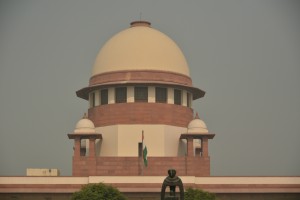Supreme Court: In the petition challenging the validity of the conveyance deed of a property situated in Bangalore in favour of the Dewan of Mysore in the year 1900, the Court held that after 104 years of the execution of the original conveyance deed, and after acquiring various lands out of this very estate, it cannot permit the State to urge that the original conveyance deed is fraudulent or that the subsequent transfers are all collusive and, as such, void.
In the year 2004, a complaint was sent by the Secretary of the Karnataka Public Service Commission where on the ground that in the conveyance deed it was fraudulently shown that the property had actually been purchased for the First Princess of Mysore out of her personal funds. It was alleged that the original conveyance deed dated 25.08.1900 had been executed only in favour of the Dewan of Mysore. Furthermore, no stamp duty was paid on the sale deed and, therefore, it was complained that the sale was either totally illegal or that the sale was in favour of the State of Mysore and “Beaulieu” estate was not the personal property of the First Princess. As a result, summary proceedings under Section 67 of the Karnataka Land Revenue Act, 1964 were initiated against the occupants.
Holding the proceedings under the said section to be without jurisdiction, the Court explained that a bare perusal of Section 67 of the 1964 Act clearly indicates that it only applies to public roads, streets, lanes etc. or to such lands which are not the property of individuals, or an aggregate of persons legally capable of holding property. A dispute of title of property between the State and individuals cannot be decided in terms of Section 67 of the 1964 Act. Merely because the Secretary of the Karnataka Public Service Commission had, in his complaint, opined that the deed of conveyance executed more than 100 years back was fraudulently claimed to be in favour of the First Princess, was not sufficient ground to proceed under Section 67 of the 1964 Act.
Considering the fact that a number of transactions relating to the said property have taken place in this large span of time, the Court said that it could not be held that all subsequent transactions relating to the estate property were fraudulent. Fraud must be pleaded and proved; it cannot be presumed. The bench of Madan B. Lokur and Deepak Gupta, JJ, hence, held that the “Beaulieu” estate was purchased by the Dewan of Mysore on behalf of the First Princess and the consideration was paid from the personal funds of First Princess. Therefore, the State of Karnataka has no right over the property. [M. Sankaranarayanan v. Deputy Commissioner, Bangalore, 2017 SCC OnLine SC 362, decided on 10.04.2017]

